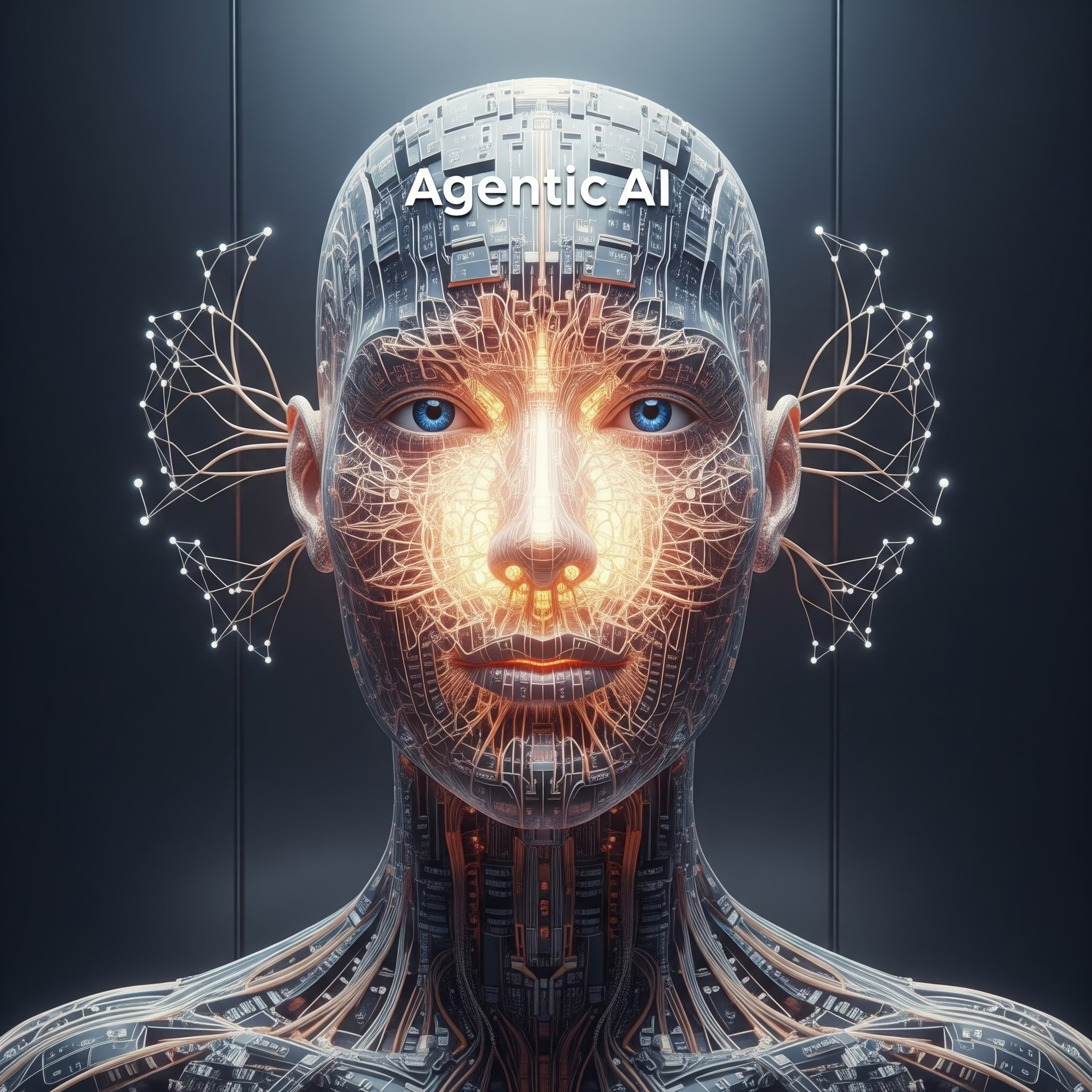Introduction
In 2025, Agentic AI is no longer a futuristic concept—it’s a transformative force redefining how we work, build, and live.These autonomous AI systems, capable of planning, reasoning, and executing tasks without human intervention, are rapidly becoming integral to industries worldwide. From enterprise operations to healthcare, finance, and beyond, Agentic AI is shifting the paradigm from human-assisted automation to intelligent, self-directed systems.
This comprehensive guide explores the rise of Agentic AI in 2025, its real-world applications, emerging trends, and the challenges and opportunities it presents.
What Is Agentic AI?
Agentic AI refers to autonomous systems that can independently make decisions and perform tasks without human oversight. Unlike traditional AI, which operates based on predefined rules, Agentic AI leverages advanced techniques such as reinforcement learning and deep learning to adapt dynamically to new situations. These systems are designed to understand context, learn from interactions, and make informed decisions, enabling them to handle complex tasks across various domains.
Key Trends Driving Agentic AI in 2025
1. Enterprise Integration and Workflow Automation
Agentic AI is being deeply embedded into enterprise systems, transforming operations by automating complex workflows. Companies are integrating AI agents into customer relationship management (CRM), enterprise resource planning (ERP), and other critical systems to enhance efficiency and decision-making. For instance, AI agents can now autonomously manage inventory, optimize supply chains, and personalize customer interactions, leading to significant productivity gains.
2. Multi-Agent Collaboration Models
In 2025, AI agents are not working in isolation but are collaborating across departments like seasoned teams. For example, HR agents synchronize with finance agents to approve job offers in real-time, eliminating manual delays. AI-driven inventory systems autonomously manage stock, reorganize shelves, and conduct audits without human oversight.This collaborative approach enhances operational efficiency and reduces the need for micromanagement.
3. Advancements in Reasoning and Planning
Recent developments in large language models (LLMs) and reinforcement learning have significantly improved AI’s reasoning and planning capabilities. Modern AI agents can now perform multi-step logical reasoning, enabling them to plan actions rather than just respond to queries. This progress allows AI to autonomously handle more complex, multi-stage workflows, such as independently conversing with customers and taking follow-up actions like processing payments or arranging shipments.
4. Vertical-Specific Agentic Solutions
Industries are now seeking AI tailored to their unique needs. In healthcare, diagnostic agents assist doctors in analyzing medical images and predicting potential health risks. In finance, trading bots analyze market trends and execute trades based on real-time data. Manufacturing sectors employ AI agents to monitor production lines, predict equipment failures, and optimize workflows, leading to faster production times and lower maintenance costs.
5. Governance-First AI Deployment
With increasing regulations like the EU AI Act and U.S. Executive Orders, businesses are prioritizing governance-first strategies for AI deployment. Companies are implementing accountability logs to track AI decision-making processes, ensuring transparency and compliance. Explainability frameworks are being adopted to make AI decisions comprehensible to users and regulators, preventing biases and enhancing trust.
Real-World Applications of Agentic AI
1. Customer Service and Support
Agentic AI is revolutionizing customer service by autonomously handling complex queries across multiple channels.These systems access relevant customer information to provide personalized service and can complete end-to-end processes like returns and bookings. According to Gartner, by 2029, agentic AI will autonomously resolve 80% of common customer service issues without human intervention, leading to a 30% reduction in operational costs.
2. Supply Chain and Logistics
In supply chain and logistics, AI agents dynamically optimize routes, manage inventory, and predict demand, reducing waste and costs. Major retailers like Walmart are leveraging these capabilities to autonomously manage inventory, predict product demand, and optimize their supply chains in real-time.
3. Human Resources (HR)
Agentic AI is transforming HR by automatically identifying talent gaps, proactively recruiting candidates, and personalizing employee engagement. These systems recommend upskilling and career paths based on workforce trends, allowing HR leaders to focus on strategic initiatives. McKinsey estimates that HR teams using Agentic AI could reduce manual workload by up to 45%.
4. Marketing and Customer Experience
AI agents are changing marketing by creating hyper-personalized experiences. They analyze customer data to provide targeted ads and product recommendations. In customer support, AI agents offer real-time assistance and multilingual support, enhancing the customer journey by predicting needs and automating interactions.
5. Integration with IoT and Smart Environments
AI agents empower smart homes and cities by interacting with IoT devices to automate routines. They manage thermostats, lighting, and security systems, and make autonomous decisions based on real-time data, such as optimizing energy consumption or monitoring environmental parameters in smart cities.
Ethical Considerations and Challenges
As Agentic AI becomes more autonomous, ethical considerations are paramount. Organizations must ensure transparency in AI decision-making, protect user privacy, and establish clear accountability for AI actions. Designing AI agents to meet human needs, training them on diverse sources to avoid bias, and setting up guardrails for security and privacy are essential steps for responsible AI deployment.
The Future of Agentic AI
The future of Agentic AI lies in unified AI ecosystems, where multiple AI agents and tools work together cohesively.Businesses will adopt platforms that orchestrate various AI functionalities, combining machine learning, natural language processing, and autonomous action into a single, integrated system. This convergence will drive more efficient, end-to-end automation across business functions, enhancing overall performance and innovation.
Conclusion
Agentic AI in 2025 is not just an emerging technology; it’s a transformative force reshaping industries and redefining the future of work. By autonomously handling complex tasks, collaborating across departments, and integrating into various sectors, Agentic AI is driving efficiency, innovation, and growth. As organizations embrace this technology, addressing ethical considerations and ensuring responsible deployment will be crucial to harnessing its full potential.

